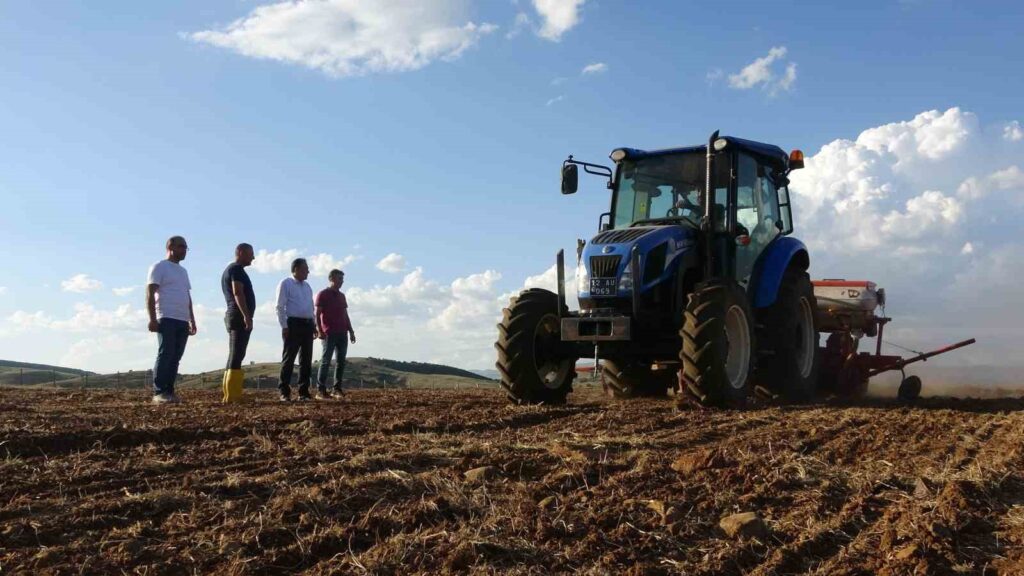Yedisu Rooster Dry Beans with geographical indication are cultivated in the university’s farm area
Yedisu Horuz Bean, a native seed of Bingöl with a geographical indication, was planted in an area of approximately 5 acres at the University’s Agricultural Application and Research Center. In addition to beekeeping and its products, various studies are also being carried out in other fields of agriculture.

The ancestral seed and geographically marked Yedisu Horuz Dry Bean of Bingöl were planted in an area of approximately 5 acres at the University’s Agricultural Application and Research Center. Bingöl University, which continues to conduct various studies in agriculture as well as in other fields, has taken action for the ancestral seed and geographically marked Yedisu Horuz Dry Bean. The Yedisu Horuz Dry Bean was planted in an area of approximately 5 acres at the farm established at Bingöl University’s Agricultural Application and Research Center. In this center, where various studies will be conducted for both academics, students, and farmers, if the desired yield is achieved, a more extensive production can be carried out. Rector Prof. Dr. İbrahim Çapak stated that not only the ancestral seed beans but also products like tomatoes and peppers are planted in the farm, emphasizing that they will continue to carry out exemplary works in the region.
Çapak said, ‘As known, our university is a basin-based agriculture university. We used to focus mainly on bees and bee products, but now we have expanded the framework and are working on other areas of agriculture in the basin. In Bingöl, we have our ancestral seed bean named Yedisu bean, which is geographically marked. We are planting this bean in the farm area of our university. The planting is done in an area of 5 acres. Hopefully, we aim to achieve good results from this. Naturally, this will set an example for those working in this field in the region. Besides the ancestral seed beans, we also produce our other products on this land. Tomatoes, peppers, etc., all are produced from ancestral seeds, and seedlings are given to citizens upon request. While conducting these studies, we do not only think as a university but also strive to set an example for the region and its people. Hopefully, in the coming days, our studies will continue more intensively and qualitatively.’







